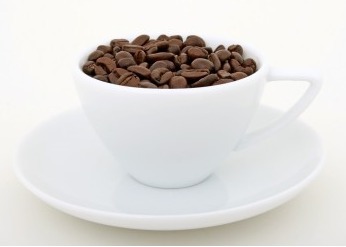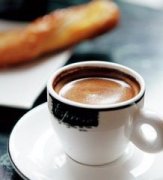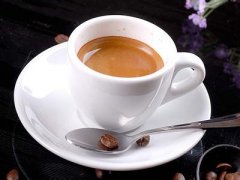Coffee Culture History Coffee Culture in America
It is only natural that the tradition of cafes spread from London to the United States. The early cafes in the United States were modelled on those in London, but slightly more dignified than the latter. Like Mr. Lloyd's in London, cafes in the United States are great places to do business and spread information. There are even conference rooms for trials, auctions and dissemination of transactions. But at that time, tea still dominated the drinks. In 1767, King George III of England promulgated the Stamp Act to raise taxes. This led to the sensational Boston tea pour in 1773. From that moment on, coffee became a national drink in the United States.

The United States has a vast territory and is a multi-ethnic country, so it is natural that it will not enjoy coffee in a single way. But on the whole, American coffee is light and clear, almost transparent, and you can even see brown coffee at the bottom of the cup. Americans like this mild coffee mainly because the Anglo-Saxon Puritans, who made up the majority of the American population in the early days, preferred black tea. After the Boston Tea incident, Americans gradually got used to using coffee instead of black tea. The public's favorite drink has gradually changed from black tea to coffee.
From the western cowboy stir-frying coffee beans in a pan to the introduction of a "boiling pot" invented by the French, the way Americans make coffee is unflattering, but they have always adhered to the fine tradition that good coffee must be freshly roasted. Even during the war, soldiers in the field did not hesitate to carry wok and grinder with them in order to drink fresh coffee.
During the Civil War, Burns invented the hot-air coffee roaster and, under the commercial operation of companies such as Abaku, quickly changed the habit of buying raw beans in grocery stores. By the end of the 19th century, people had basically given up buying raw beans for self-baking and instead bought roasted coffee beans. Of course, they did not change their habit of paying attention to freshness, so merchants offered various magic weapons to play the brand of "freshness and convenience", such as the delivery carriage of the Treasure Company, which delivered the baked treasure coffee beans directly to their doorstep; for example, Chase and Sangbang marked the baking date on the bags, which has been in use until now and has affected almost the entire food industry. Of course, the most important thing is the food packaging of coffee, metal cans, vacuum and so on. People have been making efforts for the preservation of coffee.
Today, the average annual coffee consumption in the United States is nearly 10 pounds, which is not as good as that of countries such as Finland in Europe, but it ranks first in the world in terms of total coffee consumption. In fact, the United States has always been one of the top three coffee consumers in the world.
When Americans drink coffee, it is like playing a game without rules, laissez-faire without taboos. Americans are dismissive of all kinds of exquisite coffee made by Europeans. Americans drink coffee freely, and at the same time, coffee goes deep into their lives and is difficult to separate, and the influence is so deep that it is not considered a life without coffee. It is said that the Apollo 13 spaceship, which carried a man to the moon for the first time, had a life-and-death failure on its way home. At that time, the ground crew comforted the three astronauts with a word: come on! Delicious hot coffee is waiting for your return. Americans can't do without coffee almost 24 hours a day, whether at home, in the office, in public, or at a roadside vending machine. This consumes 1/3 of the world's coffee production and is the country with the largest coffee consumption in the world.
Generally speaking, life in the United States is relatively busy and tense, unlike people in Europe and the Middle East who are able to enjoy life in a leisurely mood. When drinking coffee, it is often a large pot of electrothermal filtered coffee (Drip Coffee Marker). From morning to night, because there is too much water and less coffee (a cup of 10 grams of coffee to 200cc water), the taste is particularly weak, so many people criticize that American coffee is really bad. In fact, in all parts of the United States, coffee lovers can still taste their favorite coffee taste with a little more effort. If pure American coffee is divided into two categories, the east coast of the United States is stronger than the west coast, and the south is stronger than the north. Ethnically speaking, immigrants from southern Europe and Latinos prefer strong coffee to those from Britain, Germany and northern Europe.
In addition, although the United States is the largest exporter of instant coffee, not many people in the United States drink instant coffee. In recent years, they pay more and more attention to the results of a healthy diet, the market for non-caffeine (Coffeeineless Coffee) is increasing, and coffee without sugar is becoming more and more common.
Coffee Culture in San Francisco
San Francisco is indeed a holiday paradise. The cultural and historical scenery is pleasing to the eye, the delicacies of the restaurant are surprising, and the magnificence of the hotel is beyond imagination. There are also all kinds of theatrical performances and sports in the big American cities that tourists expect.
Overlooking San Francisco from the air, the city is as neat as a transistor radio: exquisite Victorian buildings, square parks, beautiful seaside views, beautifully decorated skyscrapers, reflective glass reflecting a gorgeous street view, and winding highways extending into the towering business district.
San Francisco's strongest voice is the enthusiasm of immigrants, an intoxicating cultural mix: distinctive Italians, Chinese, Spaniards, Japanese and South Asians dot the land of California. It is this city that gives us the beat generation, the hippie revolution, gay demonstrations, and yuppies. It doesn't matter whether you like crazy talk or Frank. Sinatra, whether you are obsessed with ballet or skateboarding, you can have fun here. San Francisco welcomes you because it is the most magnanimous city in America and one of the greatest cities in the world.
Sometimes San Francisco looks like a replica of Europe because there are too many coffee houses. San Francisco people's love of coffee is almost crazy, they tend to use coffee spoons to measure life. There are at least 40 ways to order coffee, and about 250 coffee recipes are worth trying. People in San Francisco are used to using coffee houses as the center of their community, where they make friends, listen to poetry and read alternative publications. Poetry recitation and newspaper reading are the basic components of coffee culture, and characteristic coffee is the essence of coffee culture. There are four kinds of coffee: espresso is pure black, cappuccino is black with spurted milk, rut is hot milk with black coffee, and Mercer is hot milk with chocolate and cream. In addition, lemon juice and vanilla are also very popular in San Francisco, and they are good condiments for drinking coffee.
Cafes and Starbucks in America
The first coffee shop in the United States was the London Cafe (London Coffee House), which opened in Boston in 1691. Later, the largest coffee shop in the world was also born in Boston. It was founded in 1808 and unfortunately was destroyed in a fire 10 years later.
Today's American cafes have their own unique form and atmosphere. Like the popular American fast food culture, most American cafes also embody a fast-paced way of life of American society.
Americans have created many miracles of chain operation in the catering industry, such as the well-known chain brands such as McDonald's, KFC and Pizza Hut, but no one would have thought that in just 20 years, Starbucks has created another fairy tale glory.
Today, when you go to many modern cities in the world, you will see a green round icon with the pattern of a goddess on it, smiling and telling you about a miracle from America.
You may not be surprised to say that no one knew about McDonald's in China 20 years ago, but wouldn't you be surprised when someone tells you that Starbucks, the world's most famous American coffee chain, didn't even know the name of Americans 20 years ago?
It was reported not long ago that Starbucks, an American coffee chain, now has more than 6000 stores around the world, including 4700 in North America, and plans to grow to 10000 in the near future. Looking all over the world, how many chain operations can there be on this scale? But who would have thought that when Starbucks was founded in 1971, it had only one humble store, but just 20 years later, it had 2000 stores, and 10 years later, that number had quadrupled again, which is a miracle of the world economy. Apart from the outstanding operators of Starbucks, there is also an indispensable role for this miracle, and that is coffee.
Starbucks is a real cafe in any case, and although it is in the form of a chain operation, every branch, whether in North America or China, shows the unique style and atmosphere of American cafes. Nearly 30 Starbucks stores have been opened in Beijing, and Starbucks in Shanghai is getting deeper and deeper into the hearts of fashion young people. Starbucks is a symbol of fashion culture all over the world, and it has recently been named one of the top 10 most popular brands for fashionable women in the world, which is the best interpretation of the characteristics of American cafes.
Important Notice :
前街咖啡 FrontStreet Coffee has moved to new addredd:
FrontStreet Coffee Address: 315,Donghua East Road,GuangZhou
Tel:020 38364473
- Prev

Coffee Culture History Coffee Culture in Japan
Coffee was first introduced to Japan by Dutch missionaries and traders around 1630, when the Dutch were trying desperately to spread coffee to their Asian colonies of Sri Lanka and Java. But the Japanese do not accept this strange drink. It wasn't until the Meiji Restoration that Japanese society began to learn from the West that people gradually accepted the advanced West.
- Next

History of Fine Coffee Culture Coffee Culture in Colombia
About 100 years ago, Colombian coffee was unknown to the world. The reason is that the superior geographical conditions for producing high-quality coffee have become obstacles in production and commercial activities. Coffee grown in the foothills must be picked manually. So today we can see the image of Wadi on a Colombian coffee bag dressed in traditional Colombian costumes and riding a donkey. In addition
Related
- How did the Salvadoran coffee industry develop in Central America?
- What exactly does the golden cup extraction of coffee mean?
- The Origin of Coffee flower
- [2023 Starbucks World Earth Day] there are more meaningful things besides free Starbucks coffee!
- What kind of coffee is there in Spain? 9 Flavors of Spanish Coffee
- Aromatic African coffee| Kenya's coffee culture and historical production area
- Liberica Coffee Bean knowledge: the characteristics of Liberian Coffee beans of the three original species of Coffee beans
- The origin and formula of Spanish latte introduces the taste characteristics of Bombon coffee in Valencia, Spain.
- How to adjust the solution of over-extracted coffee
- What is the tasting period of coffee beans? What is the period of coffee and beans? How should coffee wake up and raise beans?

